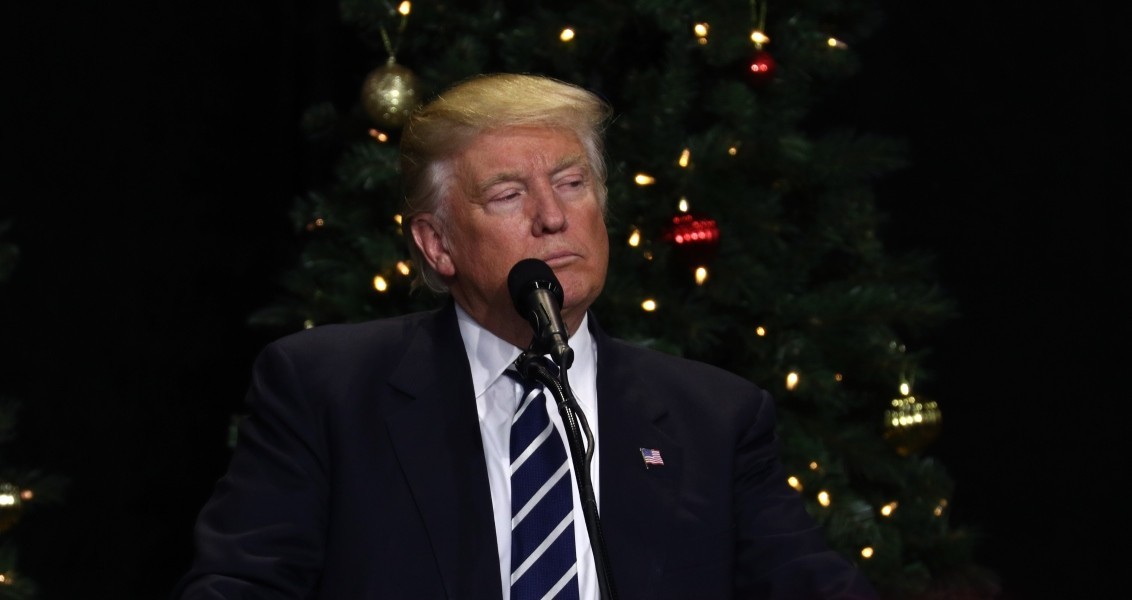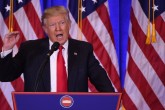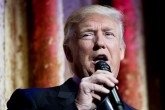With Inauguration Day around the corner, policy makers around the world are trying to understand how U.S. President-elect Donald Trump envisions Washington’s role in the world. As the most powerful player in the international arena, the United States could create new trends and shift the balance of power in various regions. Before engaging in specific questions, it is possible to make a broad prediction about the Trump administration’s strategy: Having won the presidential election by criticizing the establishment, President Trump will try to find a middle ground between his campaign pledges and the views of his cabinet members. Even though he promised to undo Barack Obama’s legacy, the next president will stick to America’s strategic priorities. In this sense, it would be wrong to associate Trump’s motto – “America First” – with isolationism. Although many Americans believe that dealing with other countries’ problems is a waste of money and energy, it’s not realistic to expect Washington to turn its back on the benefits of being a superpower. Instead, President Trump is likely to reconfigure and mobilize his country’s capabilities to serve American interests. For example, President Trump could reject the wholesale interventionism of George W. Bush and the selective interventionism of Barack Obama alike to develop a form of economic interventionism with broader strategic effects. After all, even his pledge to re-negotiate the TPP and NAFTA created a lot of tensions around the world. America’s quest for fair trade as opposed to free trade could have major effects on Washington’s relations with Russia, Europe and China. Moreover, this new brand of interventionism could easily turn into a more aggressive policy with military implications.
On Jan. 20, the most critical issue on President Trump’s desk will be to develop a new relationship with Moscow and Beijing – and the cost of creating a new balance of power. Having accused China of currency manipulation, Mr. Trump could work more closely with the Russians to keep Beijing under control. However, Secretary of Defense James Mattis considers Russia to be a serious threat, whereas National Security Adviser Michael Flynn and Secretary of State Rex Tillerson advocate closer partnership with Moscow. Keeping in mind that the Republicans have traditional concerns about Russia, the White House could experience problems with Congress.
There are other problems with Trump’s plan to cooperate with Russia: A large part of Eastern Europe, starting from Ukraine, could enter the Russian sphere of influence. Meanwhile, Germany could be weakened by British and French efforts to warm up to the Kremlin – which would shake the balance of power in Europe.
Another problem area is Washington’s strained relationship with China. Having been unsettled by Trump’s phone call with the Taiwanese leader, Beijing issued a harsh response to Tillerson’s comments about South China Sea. The U.S. should “prepare for a military clash,” the Global Times stated in an editorial, where Tillerson was accused of “rabble-rousing.” The South China Sea is a $5.3-trillion trade route in the region with rich natural gas and oil resources. If Trump uses the area to mount pressure on Beijing, South China Sea could become a flash point in the U.S.-China relationship.
Meanwhile in the Middle East, the Trump administration is expected to make a fresh start with Turkey, work more closely with Israel, curb Iran’s regional influence and actively fight Daesh. If Trump takes the anticipated steps, Turkey’s counterterrorism efforts will clearly benefit from the change in Washington. However, Israel could aggravate the Palestinian question if U.S. support translates into greed – which, in turn, could breathe new life into Iran, whose legitimacy has been lost due to Tehran’s sectarian policy in Syria.
[Daily Sabah, January 17, 2017]
In this article
- Foreign Policy
- Opinion
- 2017
- America
- China
- Counterterrorism
- DAESH
- Daily Sabah
- Donald Trump
- Europe
- George W. Bush
- Germany
- Islamic Republic of Iran
- Israel
- Liquefied Natural Gas (LNG)
- Middle East
- Palestine
- Russia
- Superpower
- Syria
- Syrian Civil War
- Syrian Conflict
- Syrian Crisis
- Taiwan
- Terror
- Terrorism
- Trump Administration
- Ukraine
- United States (US)
- US President
- US-China Relations
- USA



